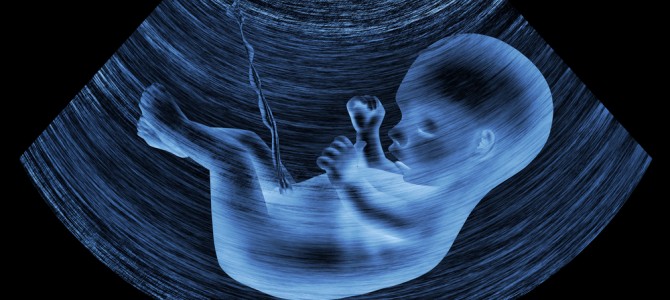
In America, it’s illegal to donate money to a candidate without first reporting it to the government. Even then, if you give more than is permissible you might end up in jail. In this country, you can’t add trans fats to your foods or smoke cigarettes in your own bar. Here, Little Sisters of the Poor can’t tell the state they’d rather not buy condoms and bakers can’t tell a couple they’d rather not participate in their wedding.
But it’s completely legal to kill an unborn baby for convenience and then sell its parts for cash.
Let’s forget the legality of the issue for a moment. And let’s forget religion and politics, if that’s possible. Let’s forget the disconcerting economic incentives inherent in these types of transactions and ask: what kind of person nonchalantly describes “crushing” the life from another living being—a being that might have already been named and loved; a loss that might have a tremendous negative impact on a person or family or community—over a glass of wine and some giggles?
Well, an executive at euphemistic Planned Parenthood, that’s who. We can tell ourselves that a life can simply be written off whenever we deem it inconvenient. We can celebrate the right to end life. But the depravity of Deborah Nucatola’s conversation betrays where it all leads—and also where it started.
If this was a video of some product researchers talking about the same process, but describing the vivisection of a monkey or a cat for organ harvesting instead, most Americans would be justly repulsed. Yet, because this is Planned Parenthood, an organization fulfilling its eugenicist founder’s goal of population control, it will be treated as just another dispute in the culture wars, completely devoid of scientific and moral context.
Because this is Planned Parenthood, most of the media will frame this as a political tug of war rather than explore the politics and ethics of allowing Americans to terminate a life and then harvest organs. Some in the media will probably have a difficult time even comprehending why anyone would deem this much of a story at all. You’ll recall how a number of politicians and reporters struggled to explain the distinction between a run-of-the-mill late-term abortionist and Kermit Gosnell. (Answer: one has a license.)
You’re involved, too. You have no “choice.” It is worth reiterating that taxpayers, in part, fund this abortion industry. The fungibility of dollars that flow into Planned Parenthood makes laws like the Hyde Amendment nothing more than a political canopy for Republicans to cower under. Until Planned Parenthood breaks off its abortion/wholesale baby-part business from its women’s health operations, you’re a big investor.
And women who donate pieces of their babies (and we still don’t understand how this happens, by default or proactively), according to U.S. Department of Health and Human Services, they may ask for “reasonable payments associated with the transportation, implantation, processing, preservation, quality control, or storage of human fetal tissue.” It’s probably not a huge moneymaker, but that’s beyond the point. Delaying an abortion to sell parts at a higher price is illegal in theory, but really, like the Hyde Amendment, completely unenforceable in practice.
Planned Parenthood argues that their peddling of human tissue (known to the rest of us as “body parts we need to survive”) is ethical and useful. The not-for-profit was merely negotiating how it would be reimbursed for human tissue—or, as the Associated Press would describe the bartering of aborted baby parts: a discussion about “the disposition of parts from aborted fetuses.” This practice isn’t new.
But killing unborn babies and selling their organs saves lives, says Planned Parenthood. (You only need to peruse the history of the twentieth century to find that line of reasoning disconcerting.) If Planned Parenthood really wanted to save lives, of course, it could start by attempting to convince—or, at the very least inform—its would-be customers that they have real choices. What Dr. Deborah Nucatola, Planned Parenthood’s senior director for medical services, really tells us is that these aren’t just clumps of cells devoid of moral significance or purpose—especially when they don’t meet Dr. Deborah Nucatola’s scalpel. “We’ve been very good at getting heart, lung, liver, because we know that,” she explains, “so I’m not gonna crush that part, I’m gonna basically crush below, I’m gonna crush above, and I’m gonna see if I can get it all intact.” She is discussing organs of a baby, evidentially, more useful to her dead than alive.
How many Americans are okay with this practice? We should find out. Liberals never have a problem making expansive arguments on emotional grounds—the single woman without health care tells all we need to know about Obamacare; the lone shooter tells us all we need to know about guns laws, etc. There is simply no reason that Nucatola should not be on television ads everywhere, sipping her wine and intimately describing how abortionists squash the life out of unborn babies for money. How many Americans would accept this policy as normal?
To be honest, I’m sort of nervous to find out.









